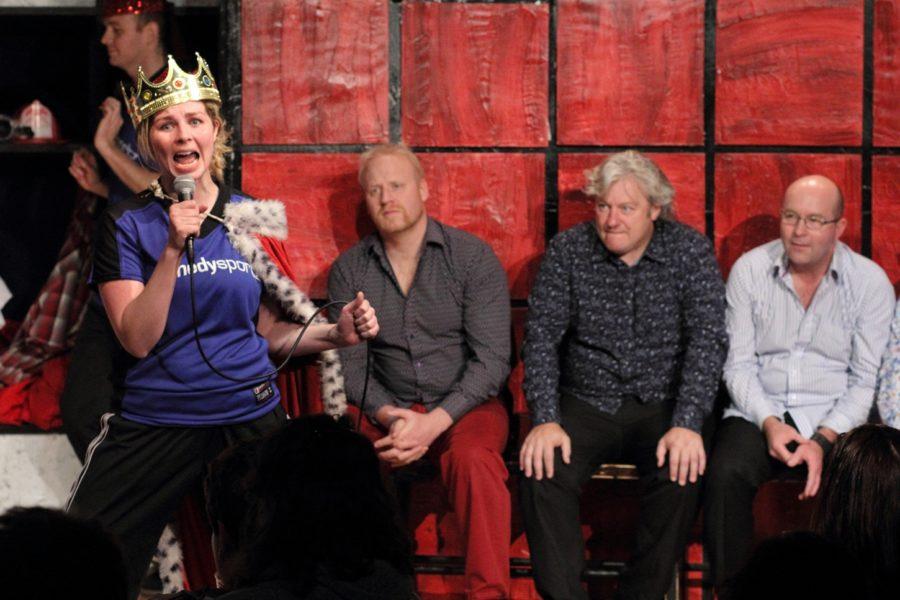This past Sunday marked the end of the 19th Chicago Improv Festival, which featured more than 170 groups from nine different countries performing in 105 shows. The festival promoted the bustling Chicago improv scene while bringing in improv veterans and upcoming acts alike.
This year’s Chicago Improv Festival aimed to provide a more intimate experience by utilizing 21 smaller, separate improv venues for the festival.
Diversity was also prioritized in the festival, which featured 14 all-women groups and eight all-minority groups. Three of these all-women groups (Woke AF, Virgin Daiquiri, and Children of a Lesser God) took the spotlight on Monday, when they starred in the festival’s opening show.
The festival’s various shows are grouped into 10 categories: Alternative/Experimental, Dramatic, Emerging Artists, Featured Acts, Genre, Long Form, Musical, Short Form, Special Events, and Open Stage.
What is experimental improv, you ask? Experimental improv works unique concepts into shows while subverting improv standards. For example, one of the experimental improv shows, No More Words, has absolutely no dialogue. Other shows use different forms or break the fourth wall.
Charna Halpern, co-founder of the iO theater and co-creator of long-form improvisation, lauds the festival for drawing crowds. In her words, “People from outside of town, people from the suburbs are coming out to see what we do.”
These people return for more improv as well. Thanks to the work of pioneers like Halpern and her partner, the late Del Close, Chicago has become the mecca of improvisation, nurturing stars such as Tina Fey, Stephen Colbert, and countless Saturday Night Live cast members. Nowadays, there are more theaters in Chicago than years of my life, and the premier theaters like iO and Second City sell out shows on the daily.
According to Halpern, the festival even brings performing talent into Chicago permanently. “A lot of improvisers from outside of Chicago may have had cold feet, then come here because of the festival and realize ‘This is where I have to be.’”
Susan Messing, a veteran improviser and teacher whose list of accolades would murder my word count, performed in four separate shows and taught one of the many workshops offered as part of the festival. Messing’s workshop, called “Protecting the Freak,” taught improvisers how to work with more troublesome improvisers. In her words, “It’s about how you play with someone whose energy seems significantly different than yours. I give a lot of ways to play with people who are difficult, or unusual to play with.”
Messing and Halpern agreed that the focus of the festival is to celebrate Chicago’s existing improv scene rather than promote further interest though it clearly does both.
“We have the greatest audiences of the world in Chicago,” Messing explained. “I’m not sure if the festival significantly augments the audience, but it certainly spotlights what we do.”
This is natural, since the Chicago improv scene is wonderfully saturated. Halpern credited Chicago native Jonathan Pitts, co-founder of the Chicago Improv Festival, and his wholehearted support of the Chicago scene for bringing the festival to its current level. “He’s celebrating what we do, and we all want to support that.”









